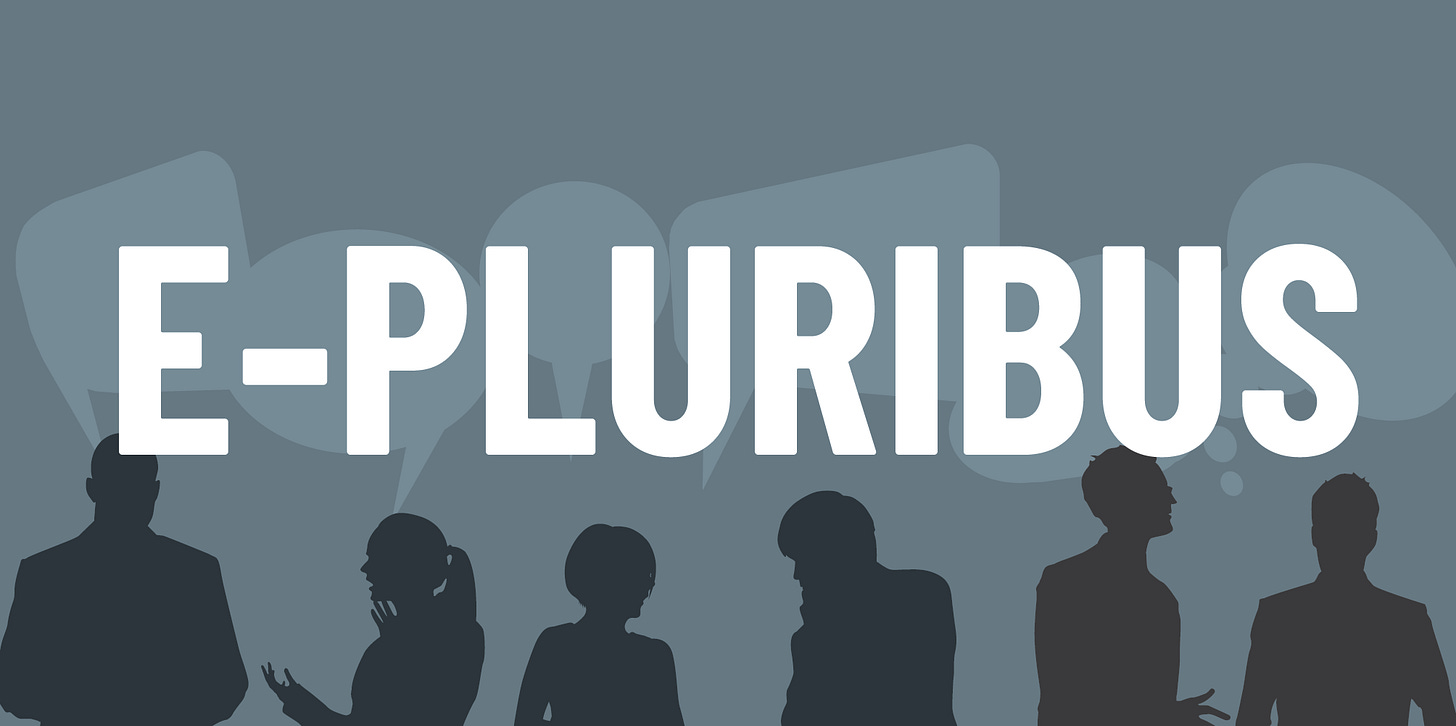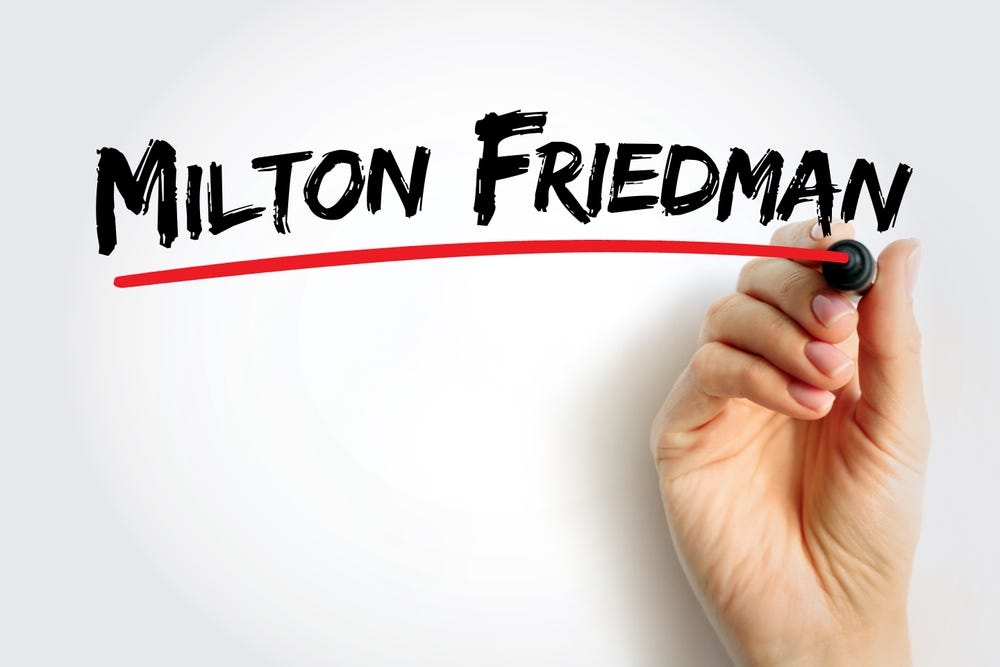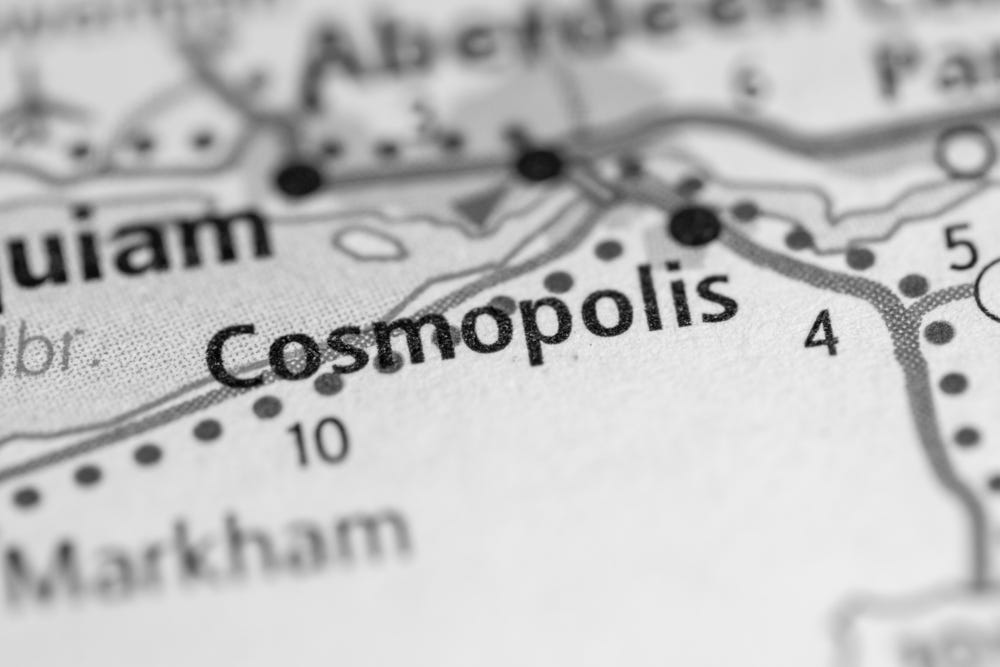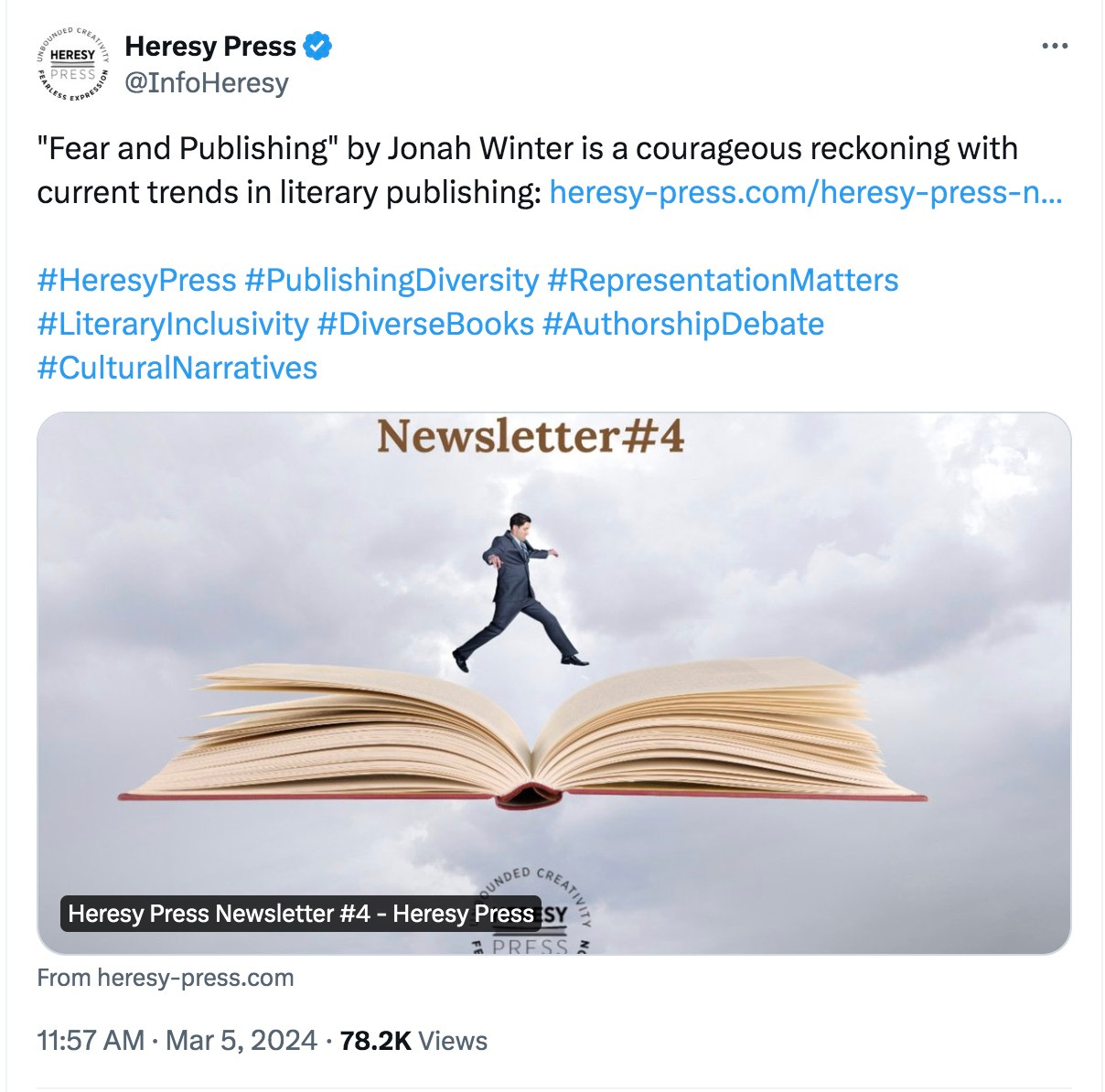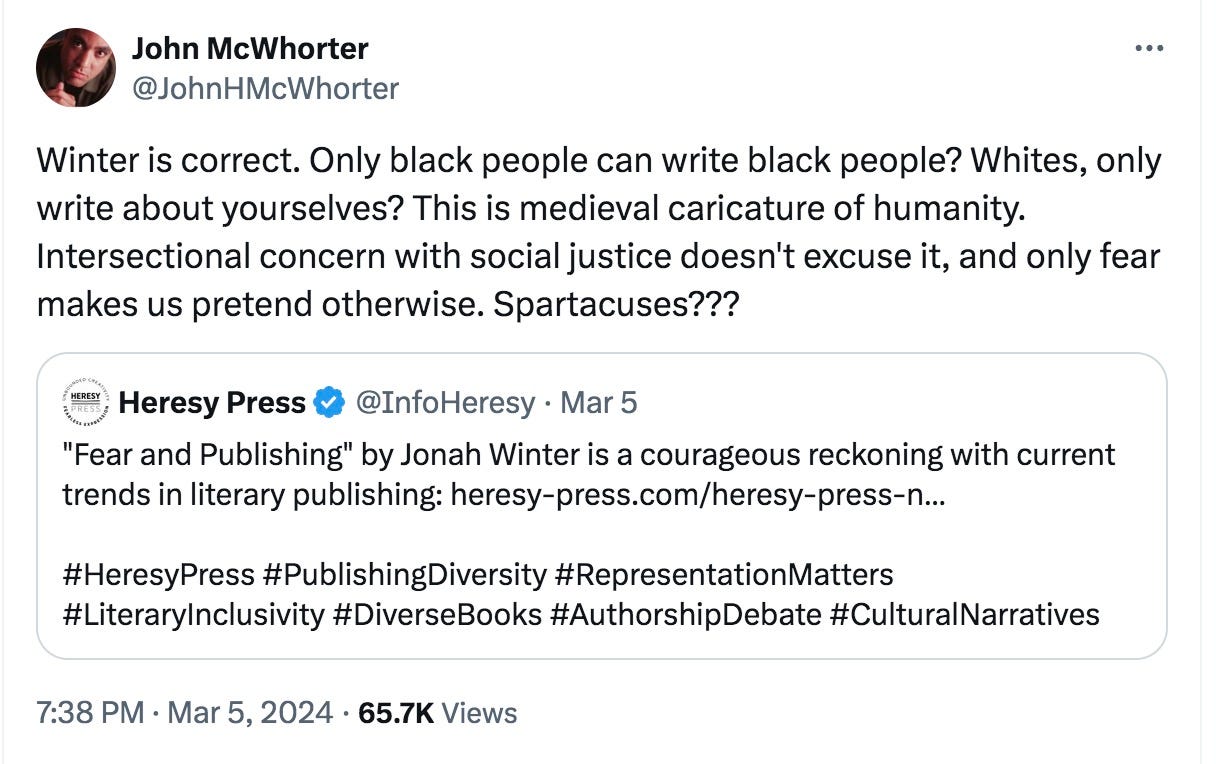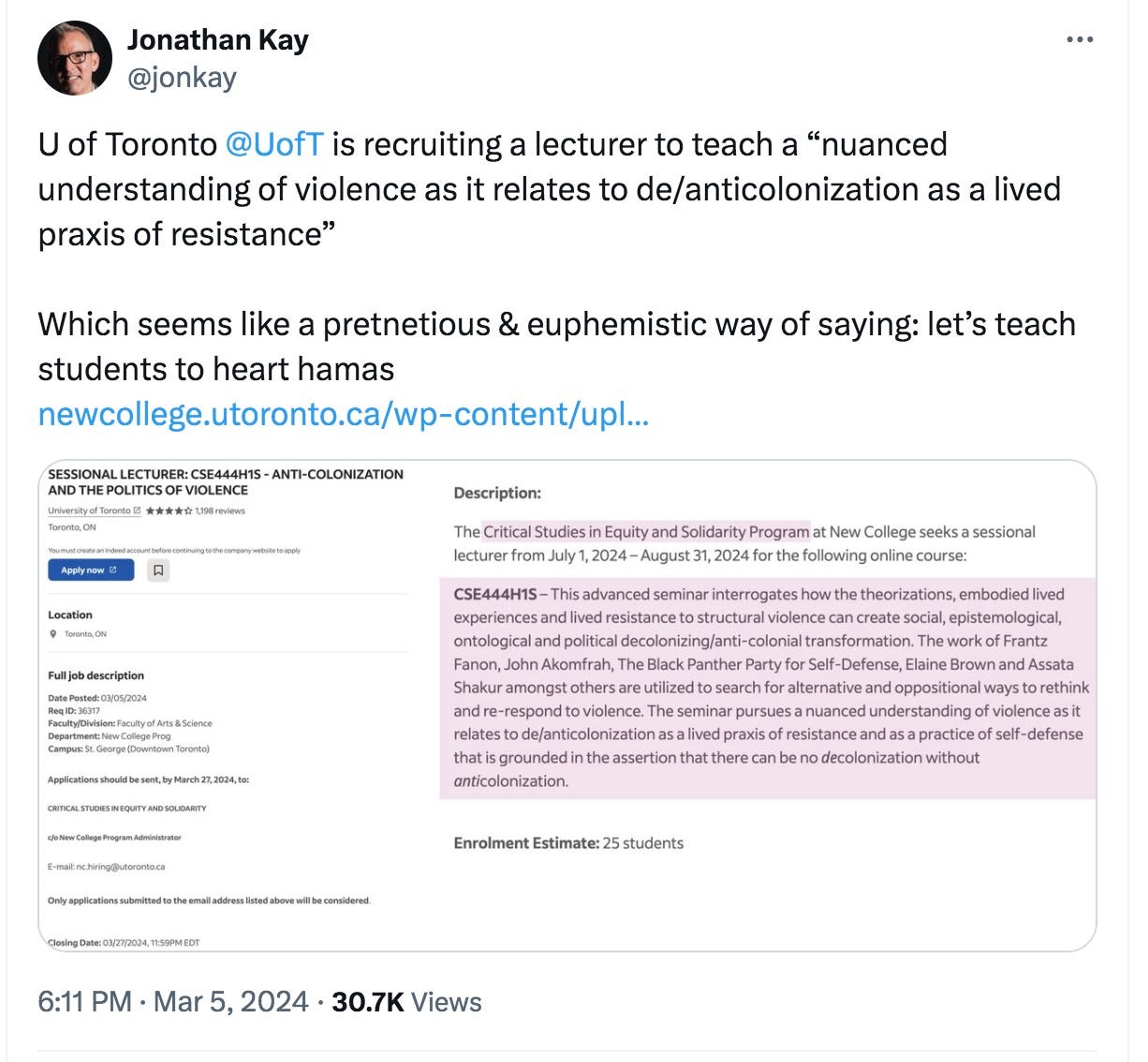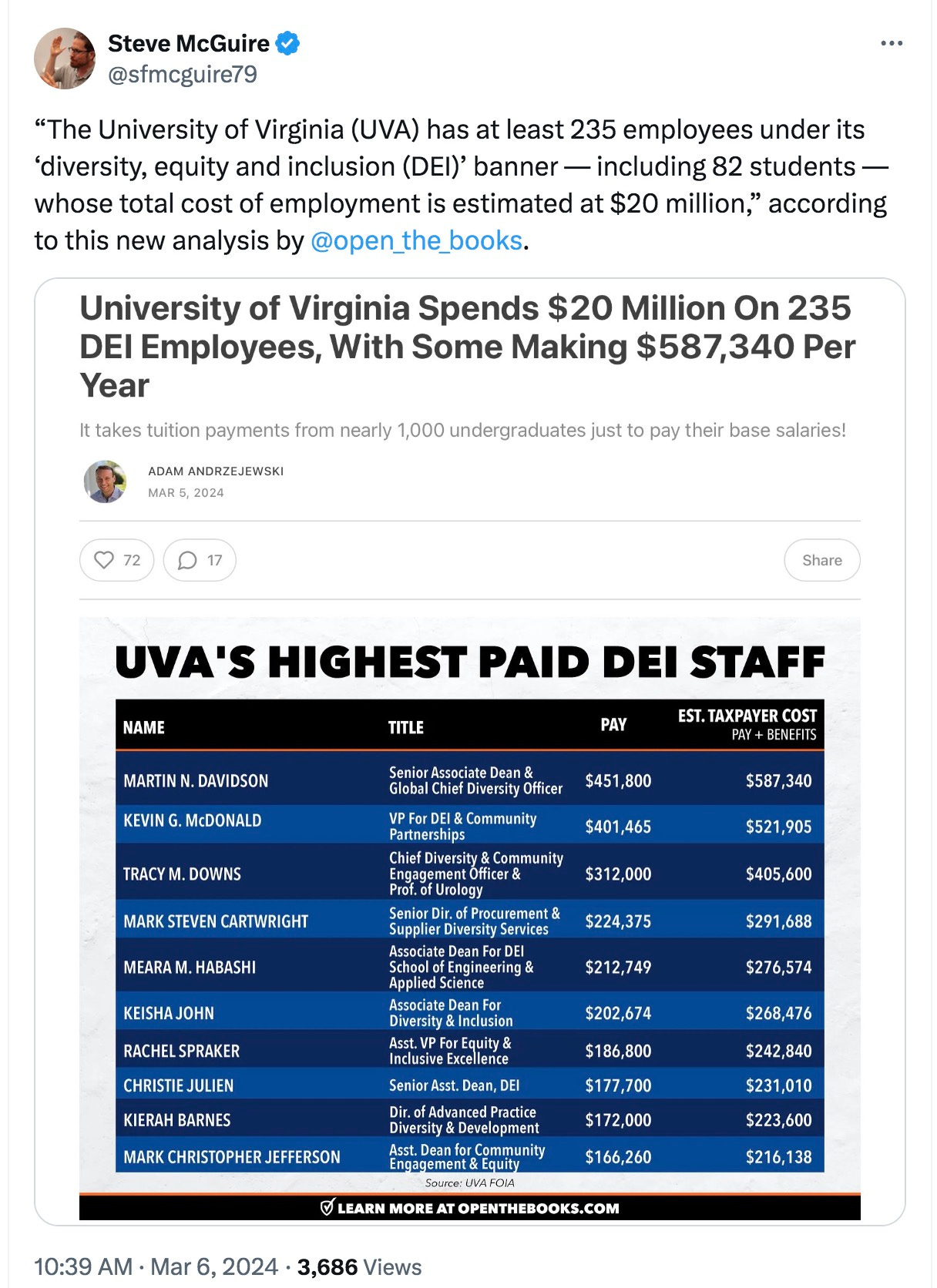E-Pluribus | March 6, 2024
Politics is no longer about politics; a new book on Milton Friedman; and a defence of cosmopolitanism.
A round-up of the latest and best musings on the rise of illiberalism in the public discourse:
John Halpin: All Politics Is Now Media Criticism
It’s been said all politics is local, but writing at Persuasion, John Halpin asserts that these days, all politics is media criticism, and that’s not a good thing. Halpin says that rather than just complain about it and further the cycle, there are practical things we can each do to restore more substance to our public discourse.
Politics used to be about “who gets what, when, how” in Harold Lasswell’s famous formulation. But today it’s more about who said what, when, and how—and why everyone is so upset about it.
Before the invasion of digital devices and endless online activity, mass politics boiled down to disciplined party and ideological workers performing the arduous task of organizing and educating small groups of people about how parties, policies, laws, and regulations might affect their personal interests and values. Elites did their part by focusing on the ideas and structures that shape these basic interests and values.
The primary goal of politics was to inform and prepare citizens to take action to achieve specific outcomes.
[. . .]
The focus of most online scuttlebutt and activity these days is dissecting how the media covers certain people or issues, rather than educating and organizing citizens to gain political power for concrete objectives. Nothing really happens in online politics other than people preening for others and getting mad about language use and “implicit bias.”
As politics has become more about meta-rhetorical complaints, and less about brass tacks economic and social policy fights, it’s little wonder things rarely pass Congress outside of crisis and emergency moments, or that issues go unaddressed for decades on end. Politics is designed to make people constantly agitated and personally aggrieved about being disrespected rather than achieving incremental gains and changes in line with people’s interests and values (e.g. House Republicans purposefully blocking all action on immigration, Ukraine, Israel, and Asia funding and then crying about the border crisis).
[. . .]
It need not be this way. The media can do its part by continuing to dig deep into real policy and political issues facing the country, and reporting the facts as best it can in a straightforward, neutral manner.
Citizens can also do their part to end endless whining in politics by trying something different this election cycle:
Don’t read, watch, post, like, share, or give money to any party, activist group, or politician who constantly complains about their media coverage—whiners are losers who don’t deserve the attention.
Read it all.
William Ruger: A Conservative Liberal
The book William Ruger reviews for City Journal includes “The Last Conservative” in its title, but Ruger says the scope of the book on Friedman’s life is much broader. One of the most influential economists in our history, Friedman’s ideas and work had an impact far beyond his field.
Jennifer Burns’s biography, Milton Friedman: The Last Conservative, will be the standard reference for anyone wanting to dive deeply into the life of the great economist and the world in which he flourished. The historical context that Burns provides makes the book almost as much a work of post-1929 economic and intellectual history as a biography of the bespectacled, diminutive professor who so influenced it. Though Burns is not uncritical of her subject, the story she tells will leave most right-leaning readers longing for the days when Friedman was one of their champions.
Before going back to Friedman’s youth in Rahway, New Jersey, and his time at Rutgers University, Burns introduces him at his apex, as economist extraordinaire and public intellectual. She notes that Friedman did more than lead the charge against Keynesianism; he “offered a philosophy of freedom that made a tremendous political impact in a liberty-loving country.” One of Burns’s goals is to “restore the fullness of Friedman’s thought to his public image” and to “approach Friedman as a scholar . . . setting his ideas in context and making his achievements legible for a new generation, either friend or foe.”
She touches all the key points of Friedman’s life, including his time at the University of Chicago as student and professor; the key influences on his thinking; his period away from academia in Washington and New York; his scholarship and leadership of the Chicago School of Economics, especially its “monetarism” and challenge to Keynesian orthodoxy; his work on the consumption function and the permanent income hypothesis, monetary history, the Phillips Curve, and the negative income tax; the controversy over his work in Chile and his relationship with Augusto Pinochet’s regime; his scuffles with mentor Arthur Burns; and the influence of his ideas on the late twentieth century and beyond. Reflecting on Friedman’s long shadow, Burns concludes that by century’s end, “the basics of monetarism had been adopted into conventional wisdom” and that “many of the things he had pressed for throughout his professional life had come to pass.”
[. . .]
[T]he book’s subtitle might unnecessarily distract readers. Burns’s case for Friedman as “the last conservative” is not intricately woven into the book, though it is comprehensible as she lays it out. As I’ve argued elsewhere, a truly American conservative wants to retain the classical liberalism of our past that emphasized individual freedom. Given Friedman’s commitment to freedom and his economic work providing a foundation for a less interventionist state, one could say that he was aiming to conserve the liberalism at the heart of the American experiment.
Read the whole thing.
Joel Kotkin: Cosmopolis or Bust?
The word “cosmopolitan” instinctively brings to mind (for me, at least) the magazine in the racks by the grocery store checkout. In his essay at Quillette, Joel Kotkin has something more substantive in mind. Our modern, interconnected world that has led to many advances for humanity (including diversity!) finds itself under the increasing influence of identitarians on both the left and right. Kotkin argues this dynamic will halt our progress and even drag us back.
Three decades ago, author Steve Toulmin published a book in which he argued that the cosmopolis constitutes the true “agenda of modernity.” Driven by increased trade and movement of peoples, it would create a universal order that “binds all things together” on the basis of Enlightenment ideals.
But perhaps no longer. Across the planet, the cosmopolitan ideal is under attack from both the nationalist Right and the intersectional Left. It is rejected not only by Western academics but also by authoritarian regimes in Moscow, Beijing, and Tehran. After decades of growth, cosmopolitanism’s driving force of global trade is in decline, and support for the free migration of people and ideas across borders is being challenged almost everywhere.
[. . .]
The roots of the cosmopolitan ideal lie in the classical world. “Consider the world as your country, with laws common to all and where the best will govern irrespective of tribe,” wrote Alexander the Great. “I do not distinguish among men, as the narrow-minded do, both among Greeks and Barbarians. I am not interested in the descendance of the citizens or their racial origins. I classify them using one criterion: their virtue.”
[. . .]
Western success in modern times, noted American economic historians Nathan Rosenberg and L.E. Birdzell Jr. in How the West Grew, lay in three factors: autonomy, experiment, and diversity. Autonomy focused on the rights of individuals; experimentalism followed the scientific method; and diversity implied the embrace of other cultures. These ideals paved the rise of Britain in the 17th century, as the island nation embraced vibrant communities like French Huguenots and Jews.
[. . .]
Today, cosmopolitan values are increasingly under assault from the political Left. Progressives may be passionate about racial diversity but they often have little regard for the civilization that has made migration successful. The identitarian Left, notes Glenn Loury, implicitly rejects the Enlightenment, which is the basis for modern cosmopolitanism. Many leftists today embrace the notion that settlement abroad constitutes a “genocide” against non-whites, while they encourage the influx of newcomers to the West as a means of transforming Western societies.
In many cases, progressives mix their passion for mass migration with a desire to create societies in which group identity markers like race and gender serve as the primary organizing principle. Groups that advocate for BIPOC (black, indigenous, and people of color) tend to believe that minorities are naturally seeking “allyship and solidarity” against “white supremacy, patriarchy and capitalism.” In some cases they oppose the very idea of citizenship. As one New York Times writer put it recently, there are ”no moral grounds” to give rights to longtime residents that are denied to people coming into the country illegally.
[. . .]
Unsurprisingly, these developments have incited a radical reaction on the political Right in many host countries. Conservatives fret about the political effects of a growing non-white population, and worry that a more diverse population may undermine key institutions and hand progressives a permanent majority.
[. . .]
There has also been a disturbing revival of an identitarianism on the Right that oddly parallels the racialism of the progressive Left. In America, in particular, this takes the form of “Christian nationalism.” Although often overhyped, this movement’s growing media presence threatens to alienate many non-Christians—from atheists, Jews, Muslims, Buddhists, and Hindus—coming to the West. It is, as Andrew Sullivan has observed, something of “a reactionary cult” that seeks to turn back the clock to an earlier, less heterodox time.
[. . .]
Together, these three forces—the identitarian Left, Islamists, and the neo-nationalist Right—threaten the future of cosmopolitan societies. The Left’s open borders agenda, embraced by some on the libertarian Right, seeks to impose enormous burdens on host societies. The effects are increasingly evident in American cities like New York and Chicago, as well as in the UK and Europe.
In order to function, a cosmopolis must embrace both toleration and the rule of law.
Read it all here.
Around Twitter (X)
I commented on my personal Twitter account yesterday about a writer pondering how a new novel might be received given that the author “doesn’t share her characters’ backgrounds.” Today, John McWhorter draws attention to a new Jonah Winter book that focuses on this disturbing trend in the publishing industry:
Jonathan Kay is suspicious of a university that is looking for a lecturer with a “nuanced understanding of violence”:
And finally, yet another example from Steve McGuire of DEI eating a university:



